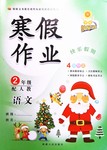题目内容
—On which day shall we go outing in the Qiagling Mountains, Friday, Satutiby or Sunday?
—______is all right.
| A.Either | B.Both | C.All | D.Any |
D
解析

练习册系列答案
 学练快车道快乐假期寒假作业系列答案
学练快车道快乐假期寒假作业系列答案
相关题目
题目内容
—On which day shall we go outing in the Qiagling Mountains, Friday, Satutiby or Sunday?
—______is all right.
| A.Either | B.Both | C.All | D.Any |
D
解析

 学练快车道快乐假期寒假作业系列答案
学练快车道快乐假期寒假作业系列答案